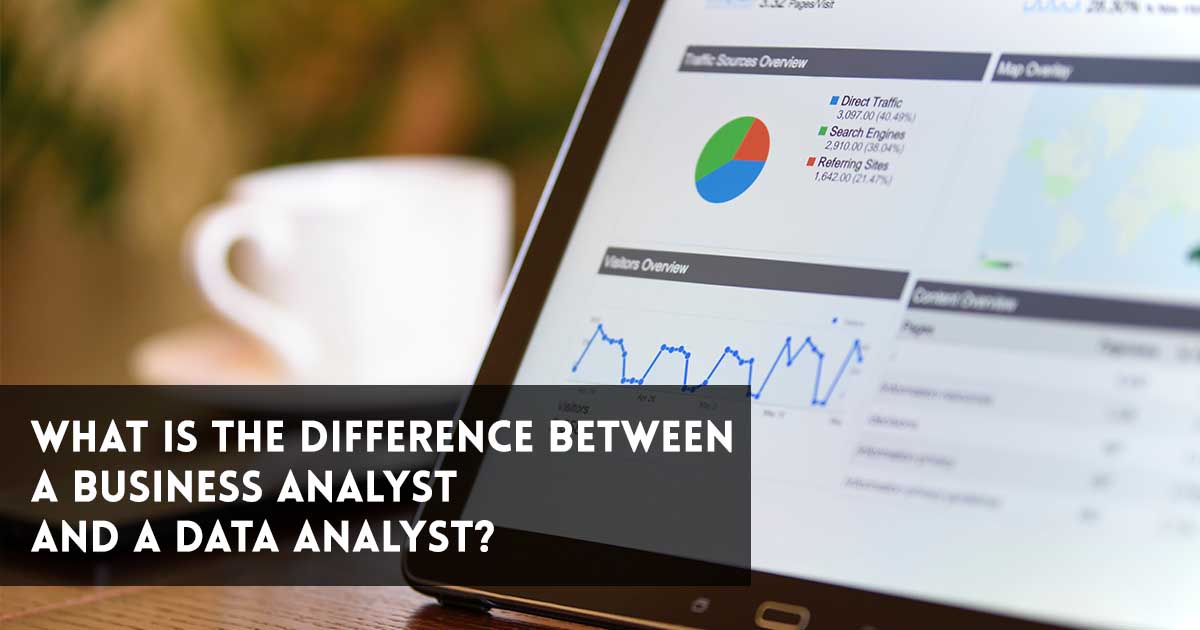Data Analyst has been around for a long time. The term Business Analyst and Data Analyst are used as a substitute for one another. Both the Business Analyst and Data Analyst roles are around “data” itself, but there is a difference between them.
Business Analyst:
Business analysts are more worried about the market consequences of the results and the subsequent behaviour. Will the size of the company grow or will it diminish? Market analysts will use data analysis teams to provide an answer.
A business analyst may analyse work habits results, explore technical problems with colleagues, and consider solutions to overcome those problems. They usually operate strongly (but not always) with the IT departments. They work more cooperatively than data analysts in general.
Data Analyst:
Data analysts view and monitor and interpret data to clarify what the data conceal. They usually then hand over this data to several other departments whose task is to handle the data and respond accordingly.
Data analysts turn statistics into narratives. They invest much of their time staring at statistics and producing analyses that display what facts the statistics conceal. Although reporting their results to different teams, they appear to work in more their own department than their colleagues in the business analysts.
Differences in Roles and Responsibilities of Business Analyst and Data Analyst:
Business Analyst:
Analyze vast quantities of complex data to include accurate knowledge. Project suggestions that meet market needs or resolve challenges. Identify the value of, capture, identify and record specific business concerns and practices. Collaborate with internal departments and external parties to intensify and fix any problems encountered in the sales streams. Find out complex business demands and procedures.
Data Analyst:
Convey and adapt personalized software templates to a particular user if appropriate. Conduct market product testing and review. Help for monitoring and measurement such as KPIs, financial analyses and the development of dashboards. Extracts useful knowledge from vast datasets.
Differences in Skills and Competencies needed for Business Analyst and Data Analyst:
Business Analyst:
Many business analysts have a degree in an enterprise-focused area such as corporate management, accounting, or economics.
They need to be good in the interpretation of the results. Quantitative approach and critical abilities. Be in a place to self-serve, investigate and get the info. Proven SAP skills (proficiency in SAP-R3/BI preferred). Good capability control in Microsoft Excel, Word, and PowerPoint.
Data Analyst:
Data analysts and business analysts are both concerned with statistics but the data analysts are more geared towards it in comparison.
The commonly sought after skills for a data analyst is a mix of technical abilities, academic interest, and monitoring capabilities for SQL / CQL, R, and Python Advanced Excel and Microsoft Office.
All you need to know about Business Analytics
Learn Business Analytics
| Top 7 Business Analytics University/ Colleges in India | Top 7 Training Institutes of Business Analytics |
| Top 7 Online Business Analytics Programs | Top 7 Certification Course of Business Analytics |
Learn Business Analytics with WAC
Other Skills in Demand
| Artificial Intelligence | Data Science |
| Digital Marketing | Business Analytics |
| Big Data | Internet of Things |
| Python Programming | Robotics & Embedded System |
| Android App Development | Machine Learning |

